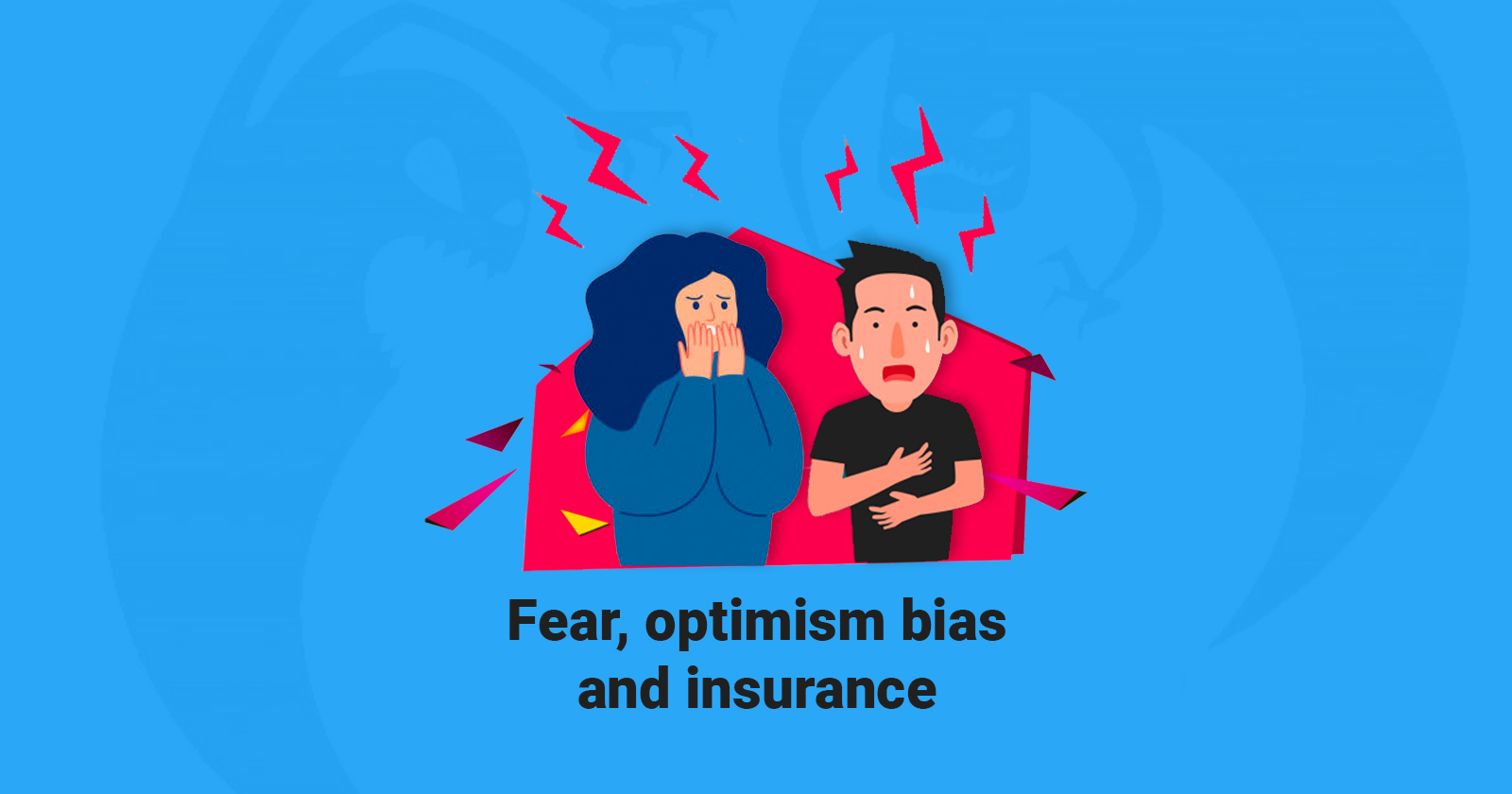
These are extraordinary times we live in given the pandemic…
Just out of this writer’s personal curiosity and sparked by the Squid Games craze tbh, we started looking at what motivates or drives certain human behaviour (which got our UX colleague very excited btw) and we chanced upon a couple of articles relating to fear and this thing on cognitive bias called optimism bias.
What started out as a personal curiosity turned into a realisation that this really resonates, not only with the team, here at Surer, but potentially our users as well i.e. insurance intermediaries vis-a-vis their clients.
Thus… this article!
We hope this could drive some food for thought amongst our users and insurance intermediaries when it comes to some resistance they face when speaking to clients.
…because it did help us understand a little more about the resistance we get when speaking to some of our users!
Of course, this article reflects this writer’s personal opinions and we don’t profess to be Sigmund Freud or some psychology expert!
Optimism bias
In a nutshell, optimism bias is a cognitive bias built in our brains leading us to believe that we are less likely to suffer from misfortune and more likely to attain success, more so than reality would suggest.
Using a more relatable example, if I were to have flu-like symptoms, I would tell myself it must really just be a common cold and not symptoms of Covid-19.
While our brains are awesome projection engines that help us anticipate future events, it can sometimes be biased and inaccurate – we overestimate the likelihood that these events will be positive and underestimate the opposite.
Basically, we are built to be more optimistic than not.
Optimism bias, Insurance, your clients and Surer
So… what has all these got to do with Insurance and Surer?
Unsurprisingly, optimism bias is thus a built-in resistance to purchasing / or being motivated to purchase Insurance.
‘[fill in the blank 1] will never happen to me so I do not need to [fill in the blank 2]’
Blank 1 could be ‘My home burning down’ and Blank 2 could be ‘purchase property insurance coverage’
It could also be
Blank 1: ‘My business being displaced by technology’
Blank 2: ‘use Surer or explore any other solution to change my business processes’
☹️
So while we understand that this is what is playing in the heads of almost everyone of us, we should learn to empathise and be more active in using hard facts and painting multiple different scenarios for your clients to have an alternate, and maybe, more realistic view.
Similarly, if an Insurance intermediaries continues to ignore transformational technology, it might be detrimental to how he/she can serve the client.
Fear
This is something we are all well acquainted with.
But even with fear, sometimes, the brain gets a little tangled up.
Take for example this question:
Do you fear living for too long or Covid-19 more?
We did a rather unprofessional and kiddish poll on our colleague’s Instagram account.
90% said Covid-19. Unsurprisingly.
We read in an article that a computational neuroscientist from Oxford University, Anders Sandberg, described how we have learnt to be more afraid of what we can understand, something more concrete, rather than one that seems foreign or abstract to us.
So, using the above question as an example, it is a more tangible fear of ours, to die of Covid-19 than to die from running out of money when we overstay our welcome in this world.
Similarly, it is easier to compute the dangers of being stuck with a hungry wolf in the middle of the woods, than for example, an economic cold war between the US and China.
Btw, just for fun, did you know that Singaporeans ranked fear of reptiles, cockroaches and germs above the fear of death? LOL
No joke, this was a survey conducted by YouGov
Fear, Insurance, your clients and Surer
So, how we fear or how we have learnt to ‘prioritise’ fear can explain some of the resistance some Insurance intermediaries face from their customers.
How I die seems to take higher priority over dying itself.
As such, and arguably, hosplitalisation plans are therefore easier to sell than for example, life or general insurance (and it gets tougher the more uncommon or niche it becomes).
It is this same fear of loss that convinces us to sometimes forgo gains – that the status quo is always more enticing than change.
This might also explain why some intermediaries find themselves trapped in the vicious cycle of fear of rejection and objection handling.
So if an intermediary can train themselves to accept that this fear is rational and part of how we are wired, then the fear of rejection and the need to handle objections becomes part of a process, rather than a setback.
Similarly, there is no need to have any fear of adopting new technology and potentially forgoing gains.
—
Of course how we perceive fear, or how we are more biased to be optimistic has its evolutionary purpose.
I mean, we cannot be fearing anything and everything at an equal level.
We also cannot be always thinking of the worst case scenario – life would be so depressing.
But we hope having some level of understanding of this would help intermediaries and us, Surer be able to find breakthrough ways to better empathise with and advise clients!
Are you an Insurance intermediary? Sign up for free now!
It is fuss-free. No credit card or payment required.
